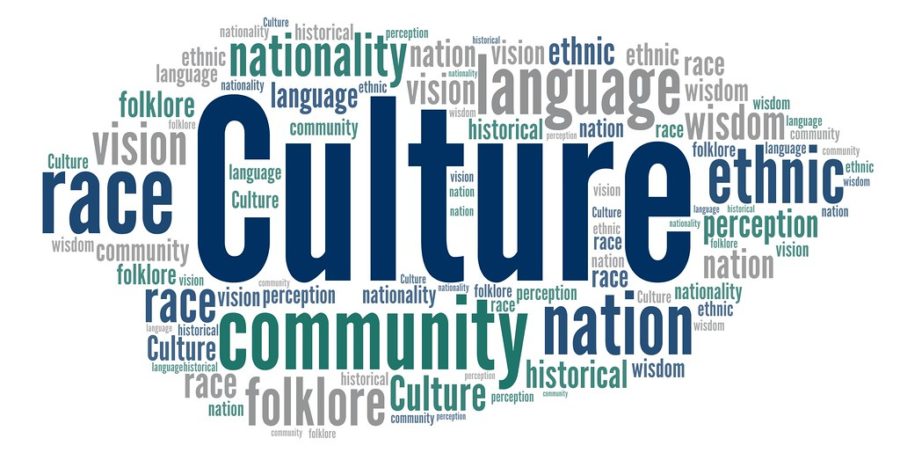The Life of a Third Culture Kid
Does the question “Where are you really from?” fill you with hesitation? Does it come hand in hand with a lengthy explanation? Do you have multiple answers, yet not one of them feels right? If so, you are most likely a third culture kid. A third culture kid,TCK, describes someone who spent much of their childhood in a culture different from their parent’s. As a result, many find TCKs feeling as if they are lying to themselves and the questioner whenever answering “Where are you really from?”.
There are more than 220 million TCKs today, with three main common circumstances leading to this.
Firstly, many TCKs grow up travelling according to their parent’s international occupations. This forms connections to the newly introduced culture and a feeling of detachment from their culture of origin. For example, if a young Belgian boy named Noah moved to Korea because of his mother’s job and lived there until graduation, he would be a TCK. Noah will have learned to identify with Korean culture, despite his Belgian heritage.
Secondly, a similar situation could develop through the life of an immigrant. Their circumstances may lead families to move to a foreign country in search for a better life. This would create the same relationship with a new culture, similarly to the mentioned example.
Thirdly, TCKs are also commonly children with parents of different origins. To elaborate, a young girl named Mia living in Japan may have a Japanese father and a German mother. She would therefore be accustomed to her Japanese culture of origin, but still be emotionally distanced from her other German place of origin. Children like Mia are therefore automatically TCKs when they are born, as it is impossible to live in both of their parent’s countries. Even if she moves to another country, other than Germany or Japan, she will be tied to the two cultures of her parents but also the culture of her new host country. A famous example of a TCK who experienced this type of childhood is Barack Obama, the 44th president of the U.S.
TCKs like Noah, Mia and Barack Obama share numerous undeniable advantages earned from their diverse childhood. For example, most TCKs are multilingual. This is because children learn languages much faster and easier than adults. On top of this, they learn to embrace diversity and become familiar with change. This adaptability will allow TCKs to problem solve, think outside the box and communicate well within new environments. Finally and most importantly, TCKs gain the privilege to travel the world at a young age. Many even become accustomed to plane rides and the airport, which they may end up considering as a place of comfort.
However, although this roaming lifestyle may seem ideal or profitable, there is a definite downside surrounding the struggle between ethnic and cultural identities. While growing up, TCKs will most likely suffer from an identity crisis deriving from their nomadic childhood. When moving homes to different countries, they will find themselves unable to fully connect to the culture. May it be their different looks, morals, or merely their knowledge of that country, they will always feel a part of themselves to be distanced. This is especially significant during the developmental stages of a child’s life, as children naturally want to look like and be completely accepted into their communities. As a result, TCKs often feel like an alien in a place that they call home, becoming too used to change and goodbyes. Therefore, a stable early life is very impactful to a child’s emotional health.
Moreover, because TCKs sense this inadequacy to embrace their cultures as children, they experience reverse culture shock when returning to their parent’s country. Reverse culture shock is similar to culture shock, but it occurs upon returning to one’s home country. When overwhelmed with a sense of reverse culture shock, one may feel disoriented, isolated and sometimes even miserable. Non-TCKs may encounter this after returning home after studying abroad for university, however many TCKs will experience this at a much younger age. For example, if Mia visits Germany during vacation, she may experience reverse culture shock. Even though she is half German, she may feel deeply disconnected and distressed by the different reactions that people have towards her. Her expectations will then be crushed by the reality of her international culture. Children like her will inevitably feel an absence of belonging and wonder which part of their cultural upbringing is really them. They may end up comparing themselves to non-TCKs.
Therefore, when interacting with a TCK, one must always keep in mind that their loyalty, culture, morals, knowledge and mannerisms belong to more than one single country. Hence, it would be polite to avoid asking a TCK to choose a favorite country or asking what country they identify as home. To TCKs, a home country does not exist, they will most likely have multiple home countries or feel at home wherever they are in the present. This privilege of travelling the world at a young age consequently leads many to misunderstand TCKs, seeing them only as spoiled children who are showing off. So, it is also important to understand that TCKs are not bragging when explaining their cultural backgrounds. They are merely stating the complex truth. In fact, most TCKs agree that the question “Where are you from?” is the most anxiety-inducing question that they face because of their childhood. This is due to the fact that their country of birth, passport country, host country and ethnic country could all be different.
So, in this world of increasing international relations, the question “Where are you from?” may hold a longer and deeper answer, especially for third culture kids. Their answer may be surprising, it may not match the individual’s appearance, accent or mannerisms but it should be respected nevertheless.










